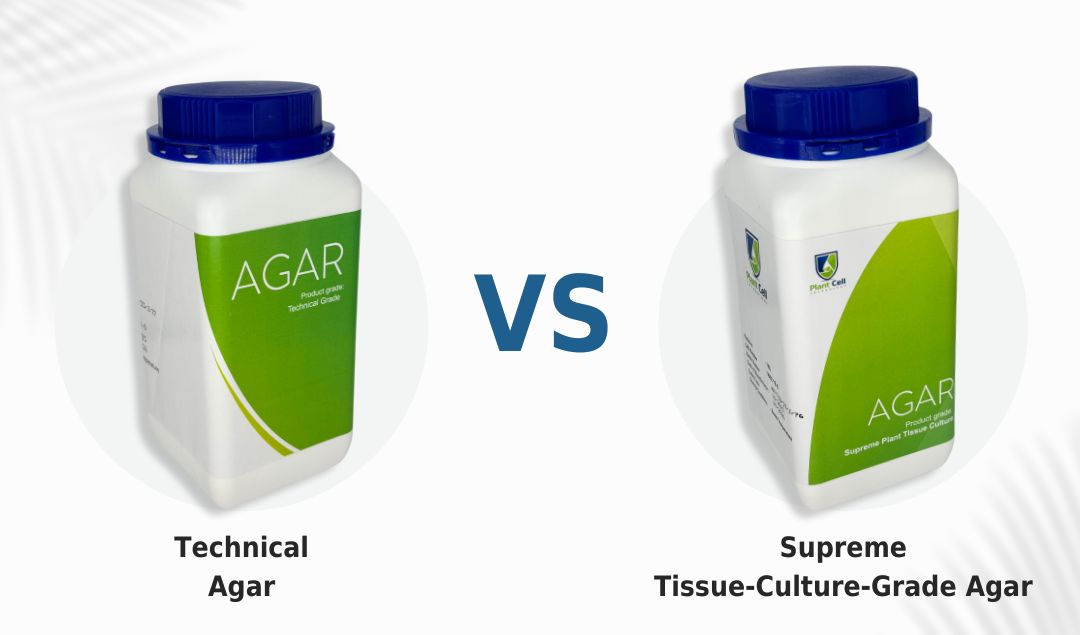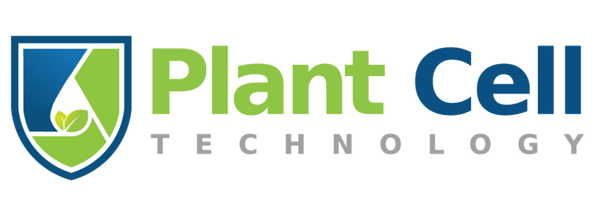
In Talk With Janet Colston Ph.D.: A Tissue Culture Expert
As a content and community manager, I leverage my expertise in plant biotechnology, passion for tissue culture, and writing skills to create compelling articles, simplifying intricate scientific concepts, and address your inquiries. As a dedicated science communicator, I strive to spark curiosity and foster a love for science in my audience.


What Was Covered During This Interview?
Hearing from an expert is all that we want to delve into technology, and understand its working mechanism, and applications.
This month we had a perfect opportunity to do an EXCLUSIVE interview with Janet Colston, Ph.D., a tissue culturist and business consultant. She is also the Founder of ‘The Functional Plant Company’ based in Scotland. Her work is mostly in R&D, which includes selecting optimal protocols for functional plants with additional phytonutrients.
Janet combines different techniques using a combination of micropropagation, aeroponic and hydroponic techniques to grow a range of plants including turmeric, strawberries, and blueberries.
Further, on the other end of the scale, she works on high-value wasabi and saffron in an end-to-end process from tissue culture to harvest either indoors or in a greenhouse.

Let’s hear about her interests in tissue culture, learn about her work, and her opinion and advice on the use of tissue culture for beginners.
To give you a heads-up, the topics covered during the interview included:
- Janet’s Experience and Work in Tissue Culture
- PCT Products and Services
- Tissue Culture For Beginners
- Tissue Culture Challenges and Potential Solutions
Let’s get started!
Janet’s Experience and Work in Tissue Culture
- When and how did you develop an interest in plant tissue culture?
I became interested in plant tissue culture to produce and scale up identical clones in a small space at home. Creating clean healthy plants was also an enticement and I feel excited about crop breeding to increase plant diversity
My knowledge and sterile technique were developed from an earlier scientific career as a 3D cellular fluorescence and mammalian tissue culture expert at Glasgow University where I managed a tissue culture facility. Years later I managed a community regeneration project including a community garden where I introduced the idea of hydroponics and urban farming.
Combining hydroponics and tissue culture techniques helps me to produce the best quality plants with strong immunity to disease.
I write and blog about these plants in the Agritech magazine, Urban Ag News, and The Functional Plant Company Instagram page. It’s done to educate growers about healthy foods produced via controlled environment agriculture.
- I was wondering what plant you are working on currently. What do you like most about it?
My specialist crop is Wasabi Japonica, a semi-aquatic plant native to Japan where it grows naturally in terraced river beds. I have been growing it in hydroponics for 7-8 years. I like challenges and this crop certainly is challenging to grow as it likes a humid yet shady climate and takes 1-2 years to harvest the rhizome. A lot can go wrong in that time with pests and diseases so it’s important that plants start strong with healthy clones.
Tissue culture helps to produce clean propagules free from endophytes which would otherwise weaken their immunity to disease. PCTs product PPM really helps reduce contamination in my process, giving security that valuable clones are not lost to infection.
I like Wasabi as I believe it has some of the most active antioxidants seen in any functional plant. We just haven’t tapped into the health properties of Wasabi yet as it’s renowned as difficult to grow which puts many farmers off.

- What’s the major barrier that you faced while starting into tissue culture?
The major barrier aside from capital start-up costs is the time invested in the intensive scaling of cultures for sales. Finding the right market and sales point is also a barrier.
- Is there any part of tissue culture that one cannot learn without the assistance of an expert?
Dissection of meristem is particularly difficult with something like strawberries and needs to be taught by an expert.
- If you are stuck at any stage of tissue culture, who can you look up to as an inspiration?
I have met many hobbyists and professionals working to very high standards in plant tissue culture but one or two stand out and inspired me initially on my journey including Angelo Alvarez of Test Tube Garden and Prof Cabral of Mericlone in Brazil.
- How do you combine hydroponics and tissue culture together in your work? For your purpose, would using both of these techniques be more effective than using hydroponics or tissue culture alone?
Tissue culture plants need a period of acclimation to harden in reduced levels of humidity ready for the field or greenhouse. In monitoring all the growth factors in a controlled environment using hydroponics we can boost propagules' survival rate and acclimate plants much faster than in soil.
- Having worked with both techniques, hydroponics, and tissue culture, you mentioned that you use hydroponics to grow berries. Why not tissue culture for these plants? What would you recommend, if you had to choose between hydroponics and tissue culture to grow berries for a business?
It’s not a case of one or the other but a combination of both techniques that work well to increase efficiency.
Tissue culture and hydroponics can be used in conjunction to ensure efficient processing for the supply chain of healthy plants to a farm whether that’s a hoop house, greenhouse, or for field production. In starting with tissue culture we control the multiplication rate and rooting. Following de-flasking, a period of acclimation is required to lower humidity levels and ‘harden’ plants.
However, we can speed up this process and increase survival rates if we use hydroponics (that is assuming facilities are set up, otherwise TC is adequate) to fast-track rooting with simultaneous acclimation in order to harden plants.
Clearly, for some sales and exports in particular it is important to sell rooted propagules in sterile media. Much will be determined by the customer and their ability to acclimate after TC but I would definitely recommend hydroponics as a means of both rooting and acclimation in de-flasking if you have the skills, equipment, and expertise.

Plant Cell Technology’s PPM and Other Services
- You’ve mentioned using PPM in your tissue culture setup, how did it go for you? For what contamination type did you use the chemical?
PPM reduced contamination in my process, giving security that valuable clones are not lost to fungal and bacterial infections
- Before PPM, what other strategies have you been following to fight contamination? And, why did you then shift to PPM?
Before I used PPM I sterilized explants with sodium hypochlorite for longer than desired and sub-cultured more often (time-consuming and costly) to stay ahead of infections.
- How did you find out about us?
I used Individual antibiotics like streptomycin and bacitracin in mammalian cell culture but they were prohibitively expensive for my plant TC setup so I started looking for a combined product at a price I could afford. Through some online research, I found PPM a few years back and have followed PCT on social media blogs since then.
- What do you say about our work in tissue culture, including our products, services, master classes, and education info that we provide through our blogs and videos?
PCTs products and services are really professional yet still accessible and easy to follow for even hobbyists and small business owners.
Tissue Culture For Beginners
Anjali: Today, with the expansion of tissue culture applications, many people want to get into the technique to grow their favorite plants. So, if you can answer some questions to help them in their journey, it’d be great!
- What plants would be easiest to work with in tissue culture, for someone who’s just starting to work in the area?
Dragon fruit or pitaya is probably the easiest plant to start with and both multiply and root quickly. The only fiddly part is sterilizing the seed.

- Would you have any suggestions or ideas for beginners who are interested in beginning a career in tissue culture? How they can do that?
Get a beginner's book and take some notes, then take a look at the plant tissue culture hashtags on social media and follow companies and individuals to get some ideas.
Sign up for a course to help with skills and advice on essential pieces of equipment and specialized techniques.
- What part of tissue culture do you think is required to be learned from an expert and one can’t do that on its own?
Dissection of meristem is particularly difficult with something like strawberries and needs to be taught by an expert.
- What educational preparation would you recommend to someone interested in making their career in tissue culture?
Certainly, a qualification in plant science or agriculture can help prepare people for a career in tissue culture but it should not be prohibitive if you are a hobbyist.
- What resource would you recommend to keep us updated with tissue culture research and news? Also, it would be great if you can name some journals and blogs best referred for tissue culture.
A quick search on PubMed will help anyone to identify information on their chosen plant. I follow AgriGenomics and Plant Breeding on LinkedIn as well as Plant Cell Technology (PCT) which is great for hearing about innovations.
Tissue Culture Challenges and Potential Solutions
- Based on your experience as a tissue culture expert, what do you consider to be the major limitations in tissue culture that limit its application and how can we overcome those?
It’s a relatively high setup cost and the skills to develop adequate sterile technique will take time to refine.
More accessible supply chains and training can help overcome these limitations.
To make the process more affordable, a shared resource could help. Co-operative facilities in community projects could allow users to produce high volumes of plants either for sale or in the field to provide healthy locally grown food.
- How do you think tissue culture is going to revolutionize the agriculture and horticulture areas in the future?
I think tissue culture will play a key role in the diversity of crops that we grow, particularly if more people want to take control of their food supply chain. For CEA growers it’s about breeding new varieties that can be grown hyperlocal whereas traditional agriculture needs plants adapted for our changing environments. Tissue culture is definitely at the forefront of providing these platforms.

- These days home-based tissue culture lab is getting in trend. What’s your opinion on the same? Do you think it will be effective? What problems can one face while doing tissue culture in such labs?
It’s great that more people are inspired to start home-based tissue culture. It can be successful if a good business model is followed and a clear market is identified. However, you will need to adapt your skills to scale up and be profitable. The main problem I see in home setups is acquiring skilled sterile techniques and using quality equipment to deliver consistent high-quality plants.
- As of today, what are some major applications of tissue culture? Where is it mostly being utilized and for what purpose?
I think tissue culture will help eliminate plant diseases to increase yields, crop diversity, and conserve germplasm.
For instance, commercial tissue culture in Scotland supports the berry industry, in particular breeding of raspberries, strawberries, and blueberries, adapting these crops to changing environmental conditions for higher yields.
...........................................................................................................................................................................................
Thanks, Janet for taking this interview and the time to share her insights on plant tissue culture with our wonderful tissue culture community.
Should you have any questions regarding plant tissue culture, including classes you want to attend, products you need to perform tissue culture, or building your lab, email us at info@plantcelltechnology.com.We’ll be on the other end, ready to take your concerns!
Happy Culturing!
Blog Categories
View by Level
Popular Blogs

6 Plant Tissue Culture Books to Keep Learning
Introduction Most of us are fans of books when it comes to learning a topic in detail and in a...
Read More
New Technical Agar Vs Supreme Agar
Introduction What’s the secret element that supports and holds plants in vitro? Not sure? It’s the solidifying agent. Solidifying agents...
Read MoreSubscribe to Our Newsletter







Join the conversation
Your email address will not be published. Required fields are marked